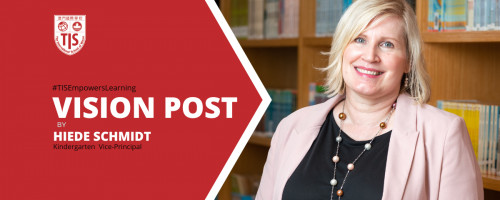
Inquiry in the early years
As we move towards becoming a PYP candidate school and implementing the IB PYP in September 2023, it is important to understand and celebrate the amazing inquiries taking place in our Kindergarten and our commitment to deepen our knowledge as educators, students and community members. The Alberta Flight Curriculum and Kindergarten Frameworks are designed with inquiry based teaching at the forefront. How do we plan for inquiries and yet remain student centered and led?
What is Inquiry?
Inquiry is an approach that consciously positions the learner an active participant in a process of investigation. Questions, both teacher and learner initiated, help drive the learning. - Kath Murdoch
'Inquiry is the dynamic process of being open to wonder and puzzlements and coming to know and understand the world' (Alberta Learning, 2004). 'Simply put, inquiry is the personal path of questioning, investigating, and reasoning that takes us from not knowing to knowing' (Ferlazzo & Boss, 2015).
Why is Inquiry Important?
We have all heard that we are preparing students for jobs that do not exist yet. And this is true! As educators and partners in educating students, it is important to equip our students with the dispositions and attitudes to learn.
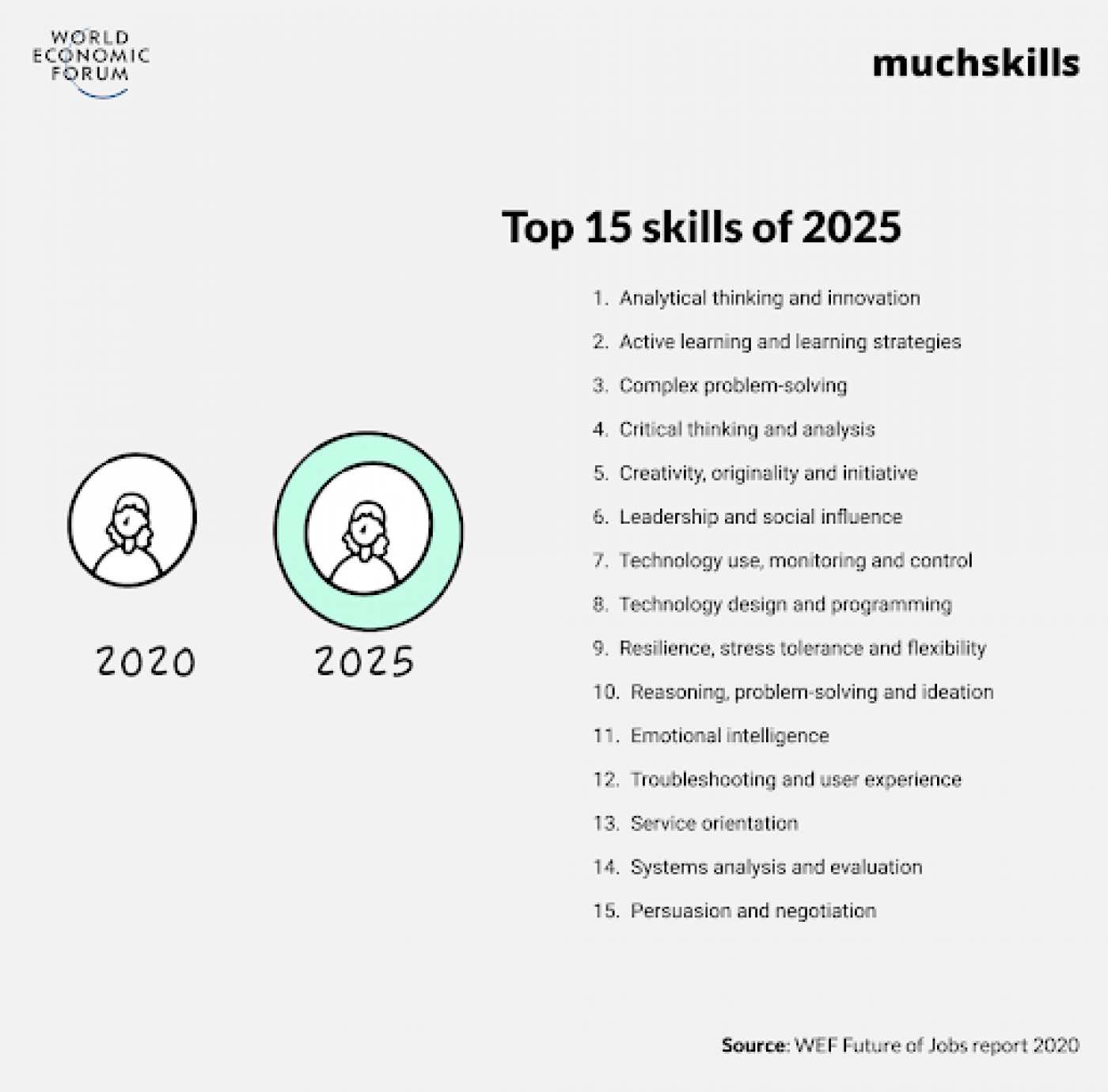
Information is readily available and accessible but learning how to learn and developing growth mindsets, passionate and innovative learners all stem from a desire to wonder, experiment, question. Inquiry based teaching and learning is a student based approach that builds lifelong learners.
It all starts with a Provocation!
What is a provocation?
It is an invitation or opportunity to wonder, explore, stimulate learning. A Provocation in an early years classroom can be anything from a book, artifact, nature walk, photograph, news item, natural elements in the classroom, open ended materials, celebrations. These can all evoke a response from children. Classrooms are set up with many provocations or continuous provisions to facilitate learning without being overstimulating in order to give students space to wonder.
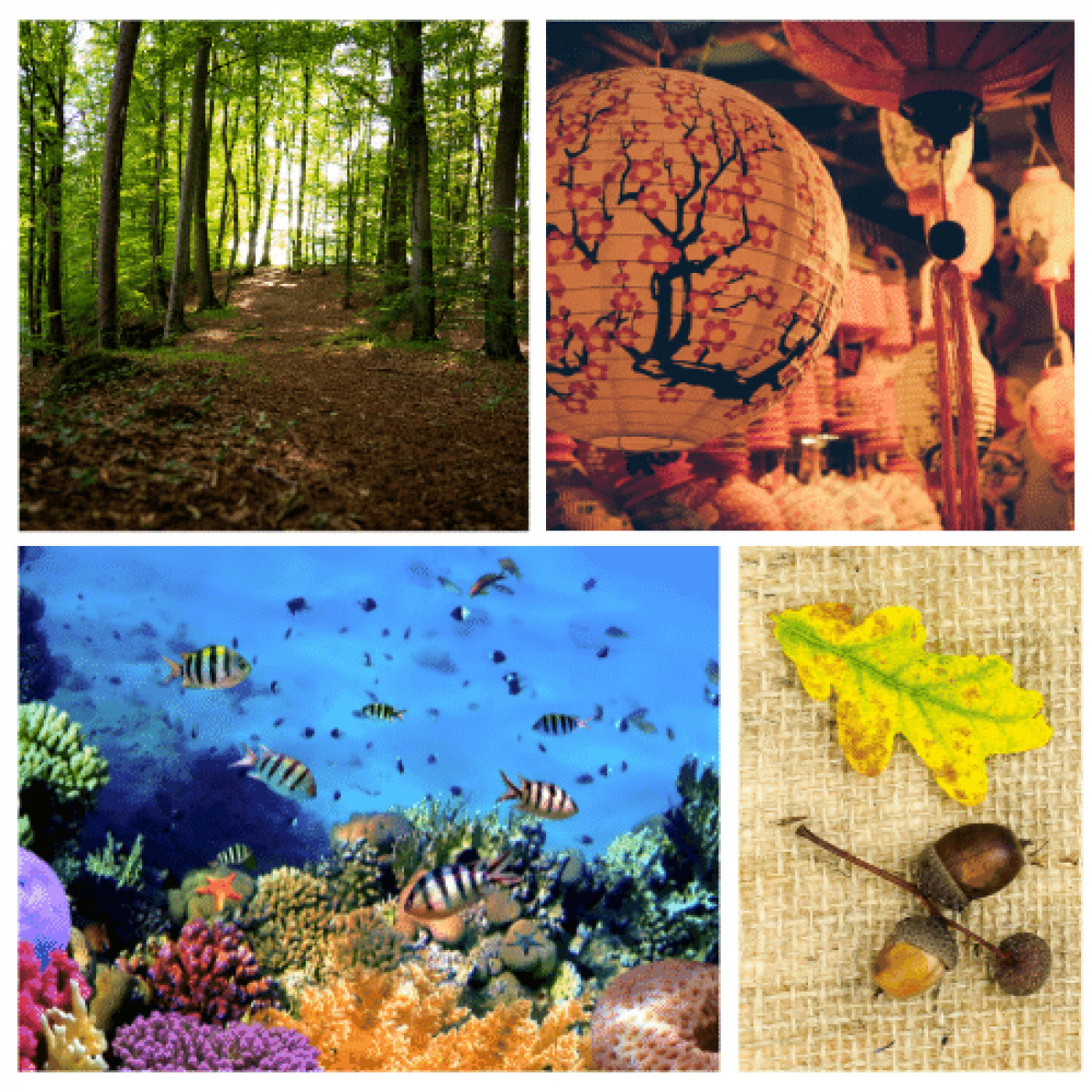
What does an inquiry project look like?
Inquiry projects are based around four conceptual units in the Kindergarten:
Who We Are
How we express ourselves creatively
Caring about our world and planet
Healthy Living and how we care for ourselves
These units can look very different in each individual classroom as inquiries can take many different paths based on children's’ interests. This is the strength of inquiry based teaching and learning where students can be empowered and active participants in their own learning. All units are planned for in each of the Kindergarten grades; PK, JK and SK.
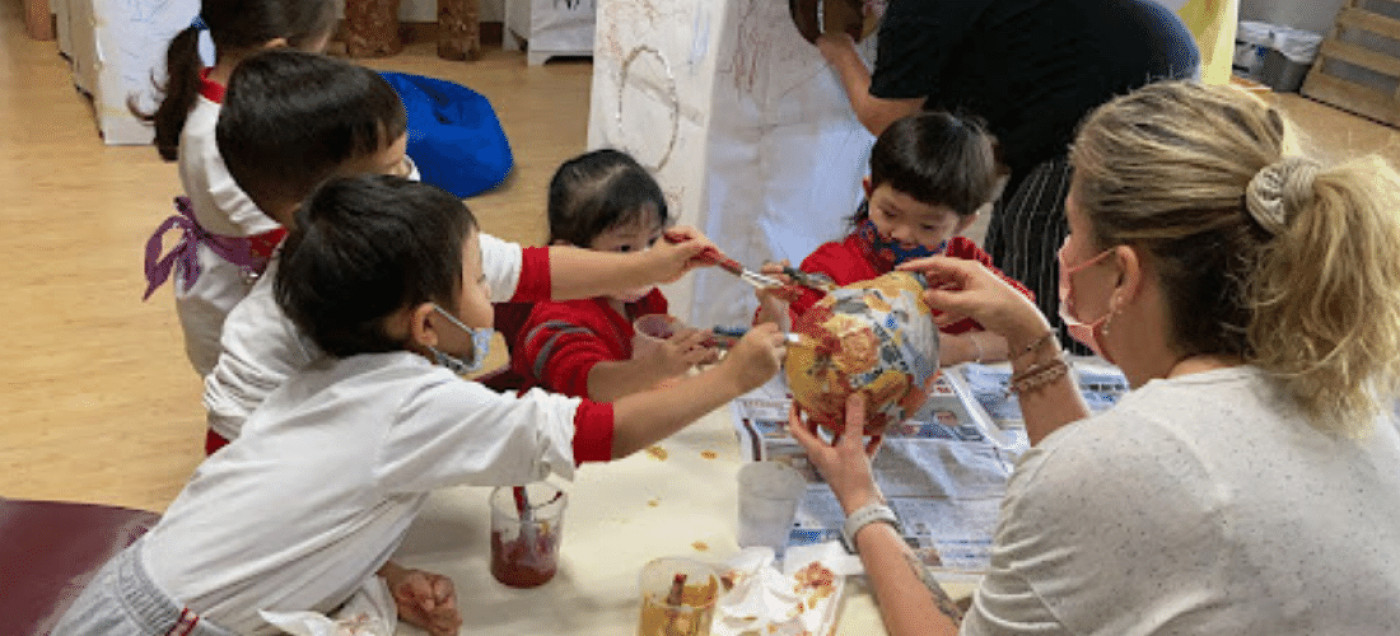
Kath Murdoch Inquiry Cycle
Kath Murdoch is a highly respected Australian Early Childhood educator and several of our TIS teachers have attended her Professional Development sessions to learn from her expertise in inquiry in the early years.
Teachers extensively document and plan for each unit of inquiry in Grade level teams, teaching teams and with the Mandarin Team. The TIS Kindergarten is a play-based program that is purposeful, researched, meticulously structured so that students can wonder, experiment, research and reflect. All classes use the inquiry cycle, which is a visible thinking routine for students, teachers and members of the community. As students move through the inquiry, their questions, thinking, ideas, conceptual understandings are recorded and celebrated and inquiries move forward. The IBO states about inquiry “the process initiated by the students or teacher that moves the students from their current level of understanding to a new and deeper level of understanding” (IBO, 2009, P. 29). The Kath Murdoch inquiry cycle enables students and teachers to guide and shape inquiries and provides a visible learning journey.
Source: (n.d.). Kath Murdoch. Kath Murdoch Education Consultant. https://www.kathmurdoch.com.au/new-page-2-1
A few examples!
Last year in the TIS Kindergarten a PK class explored an entire three month inquiry on the moon and planets after learning about the Moon Festival from a storybook. They went on to learn about the solar system and space and they explored the entire PK curriculum goals through this unit of inquiry. The unit ended with a Celebration of Learning where students could share their learning with families through their art projects, models of the plants, space role-play centre and their reflections.
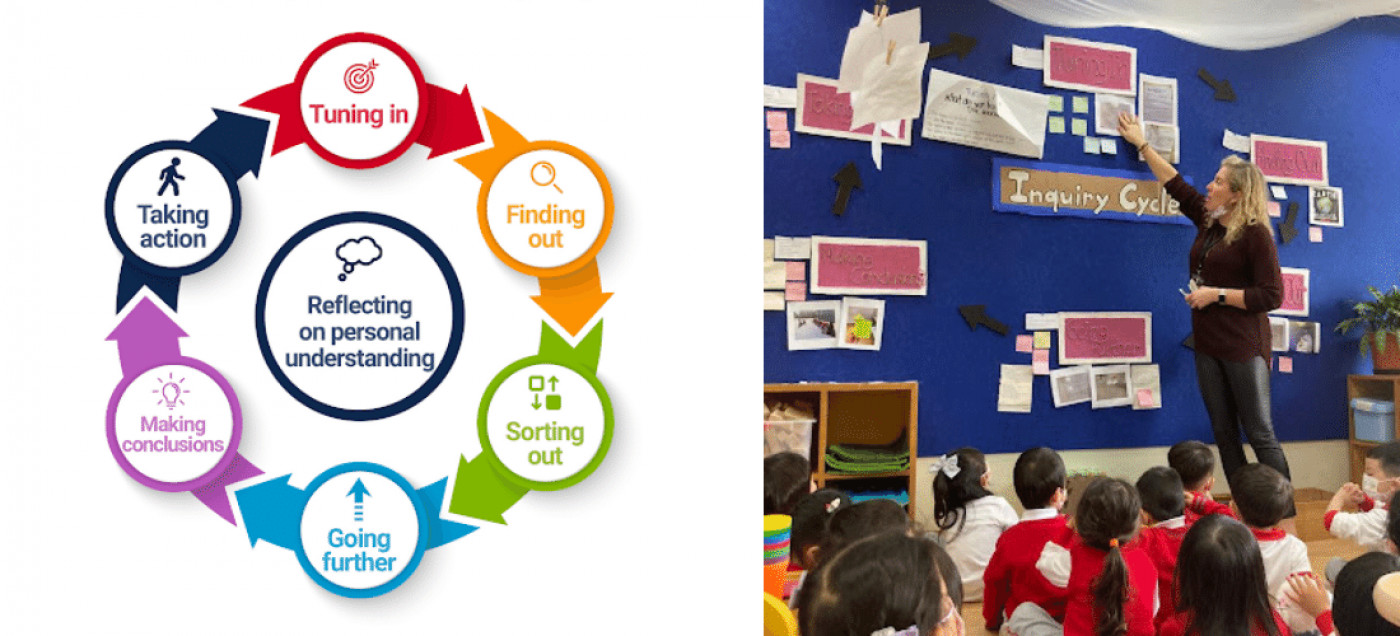
Another class was inspired by the Activist in Residence Program centred around protecting ocean life. They learned all about ocean creatures and wrote and published a story about protecting life in the ocean and proceeds from their book raised funds to facilitate purchases of protective coral house structures.
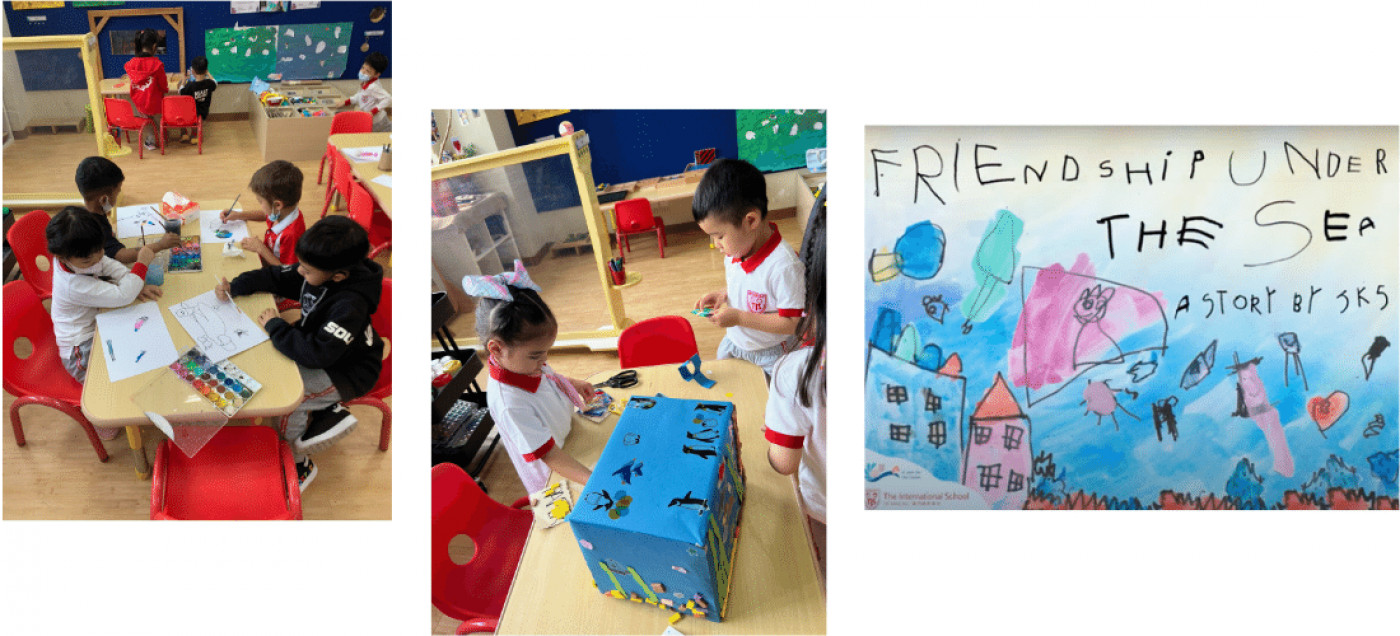
There are many amazing inquiries that take place on a daily basis in the TIS Kindergarten. Here are a few such as inquiries taking place now:
Buildings and structure around the world and in Macau
Nature: vegetable planting in the Outdoor Classroom
Bug and bird studies
Community helpers
Healthy snacks
An inquiry into Friendship
Zones of Regulation
A famous quote comes to mind when asked about inquiry.
“Tell me and I forget, Teach me and I remember, Involve me and I learn.” Benjamin Franklin
We certainly see these connections and pathways opening in our youngest learners’ minds each and every day.



